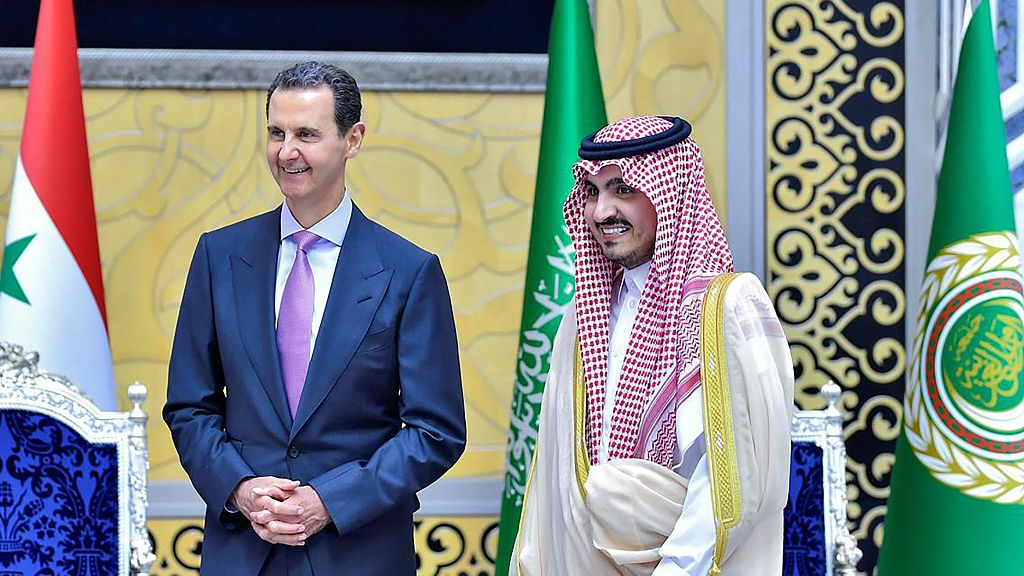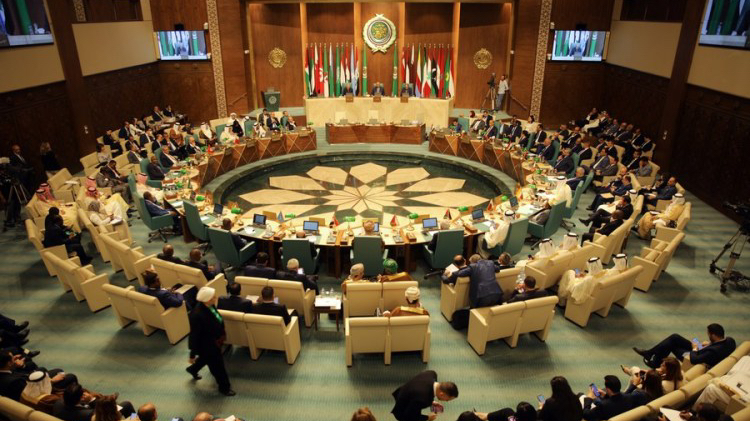
Syrian President Bashar al-Assad (R) arrives in the Saudi city of Jeddah and is greeted by Prince Badr bin Sultan (L), deputy governor of Mecca, on May 18, 2023. CFP.
Syrian President Bashar al-Assad (R) arrives in the Saudi city of Jeddah and is greeted by Prince Badr bin Sultan (L), deputy governor of Mecca, on May 18, 2023. CFP.
Editor's note: Kevork Almassian is a Syrian journalist and founder of Syriana Analysis. The article reflects the author's opinions and not necessarily the views of CGTN.
In politics, confirmation bias and wishful thinking are recipes for foolishness because they draw unhealthy boundaries to the discussion about the potential outcome of a significant conflict.
In early July 2011, as I was walking out of a "consultative meeting" in Damascus between political and public figures close to the government and members of the Syrian opposition, an academic with close ties to the Assad government advised me to refrain from making public statements because his contacts in Washington told him that Assad's days were "numbered." Despite his close ties to Damascus, this political figure assured me that Assad would leave "before September 2011" and that I may lose "professional opportunities" if I bet on the "wrong horse."
This narrative was circulated by the United States and its Western allies in the early days of the Syrian war with the aim of blocking any local or Arab diplomatic initiatives aimed at finding a peaceful resolution to the Syrian crisis.
In this context, the Arab League (AL) voted in November 2011 to suspend Syria's membership quoting "violent crackdown" on "pro-democracy protesters."
While the Arab organization claimed in the words of former Qatari Foreign Minister, Hamad bin Jassim bin Jaber bin Muhammad Al-Thani that the decision was aimed at pressuring Damascus to "stop the violence and begin a real dialogue toward real reform," the suspension was intended to isolate Damascus regionally and legitimize future escalating steps by the United States in the process of leading the regime-change war in Syria under the umbrella of the Central Intelligence Agency (CIA) covert operation "Timber Sycamore."
In 2019, while the U.S. was changing its strategy in Syria and moving forward to adopt the Caesar Syria Civilian Protection Act which aimed to crush the Syrian economy and prevent reconstruction, some Arab countries such as the United Arab Emirates (UAE), Oman, Jordan, Algeria and Iraq started sending opposite signals to Damascus and expressed willingness to restore ties with the war-torn country.
Although Saudi Arabia got on the normalization bandwagon at a later stage, it is believed that both Riyadh and Abu Dhabi propelled the diplomatic efforts which resulted in the decision of the AL to re-admit Syria to the regional organization.
However, with the eruption of the Ukraine proxy war between Russia and NATO countries and the rise of economic powers such as China, increasing number of countries are challenging the U.S. hegemony, including Arab countries that are not willing to blindly follow American dictates.

The scene of an Arab League extraordinary meeting held in Cairo, Egypt, May 7, 2023. /Xinhua
The scene of an Arab League extraordinary meeting held in Cairo, Egypt, May 7, 2023. /Xinhua
The balance of power has clearly shifted in the region especially after China brokered an agreement between Iran and Saudi Arabia to restore diplomatic ties between the two conflicting states that have been engaged in several proxy wars against one another.
Given that the U.S. has held its grip over the Middle East with an iron fist over several decades, analysts believe the China-brokered deal between Riyadh and Tehran and the Russia-brokered deal between Damascus and Riyadh will further facilitate the rise of a new world order based on mutual respect and economic cooperation.
Swimming against the tide of peace, the House Foreign Affairs Committee in the U.S. Congress unanimously passed on May 17 the Assad Regime Anti-Normalization Act of 2023. The Act explicitly forbids the federal government of the United States from recognizing or restoring ties with any government in Syria led by Bashar al-Assad, which is already a target of American sanctions. The law also broadens the application of the Caesar Act.
According to Reuters, who cited a senior member of Congress engaged in drafting the bill, the Act serves as a strong warning to Turkey and other Arab nations against the dire consequences should they engage with the Assad government.
Similarly, Germany's Foreign Minister Annalena Baerbock warned during her visit to Saudi Arabia against what she called "unconditional normalization" of relations with Syrian President Bashar al-Assad. Baerbock said, "Every step towards Assad should be made dependent on concrete concessions."
These rogue policies and statements coming from the U.S. and Europe show everything that is wrong in the West and despised by the rest of the world, namely the colonial and imperialist mindset. Western political elites cannot fathom out the fact that the days of the U.S.-led world order are coming to an end and a multipolar world will replace such arrogance with diplomacy and equality.
Despite this uproar, the warnings of the United States and European leaders fall on deaf ears in Arab countries. Bashar al-Assad has arrived in Jeddah to attend the Arab League summit. Later in November, Assad will attend the World Climate Conference in Dubai. Numerous international leaders will also attend and most likely seek contact with Assad behind closed doors.
Big changes are happening in world politics, while the U.S. and some European countries are isolating themselves from the rest of the world.
(If you want to contribute and have specific expertise, please contact us at opinions@cgtn.com. Follow @thouse_opinions on Twitter to discover the latest commentaries in the CGTN Opinion Section.)